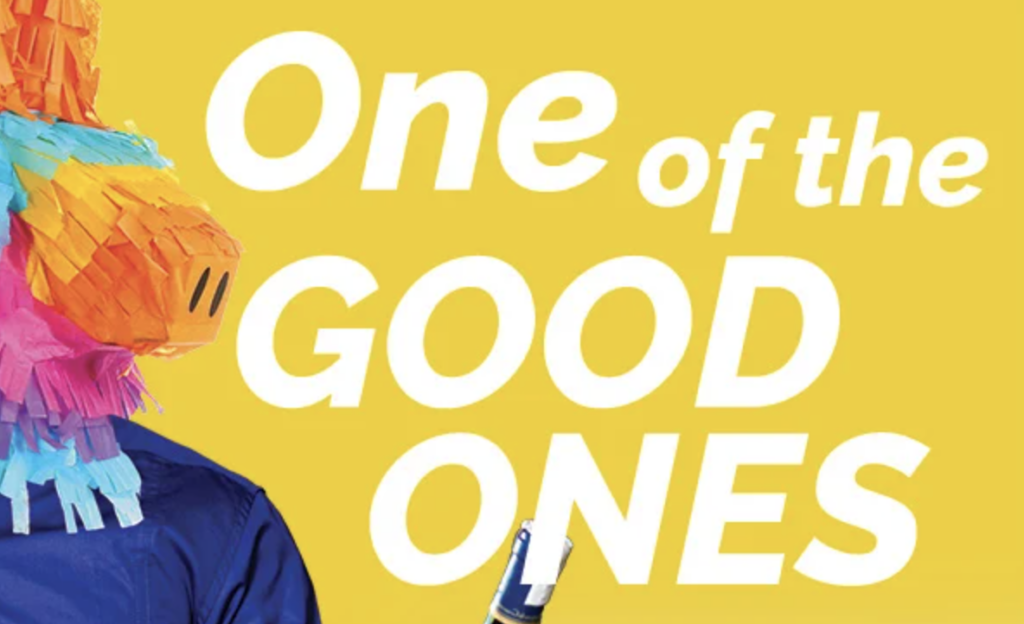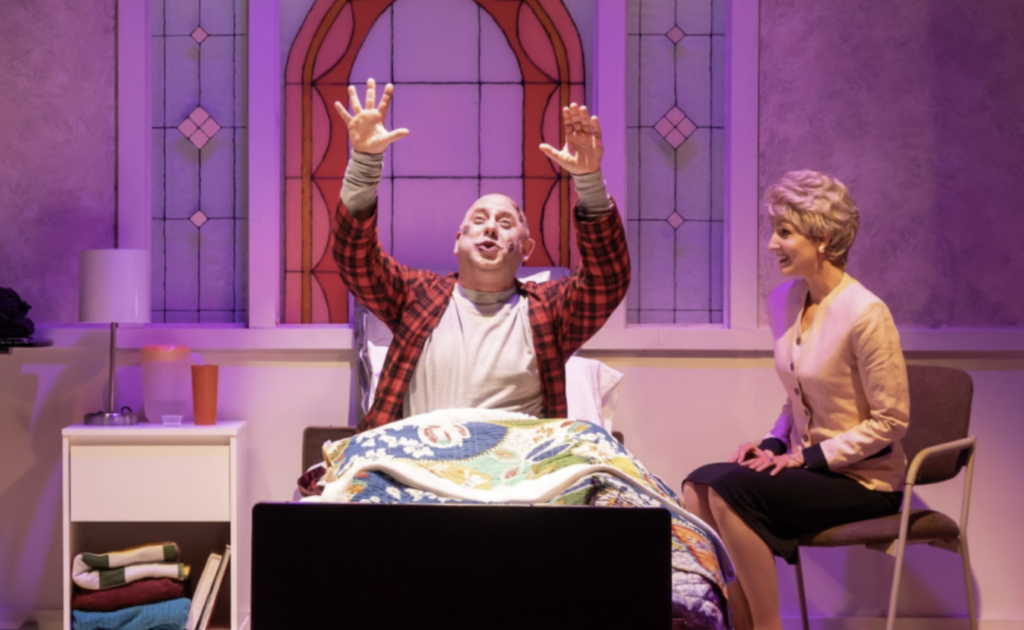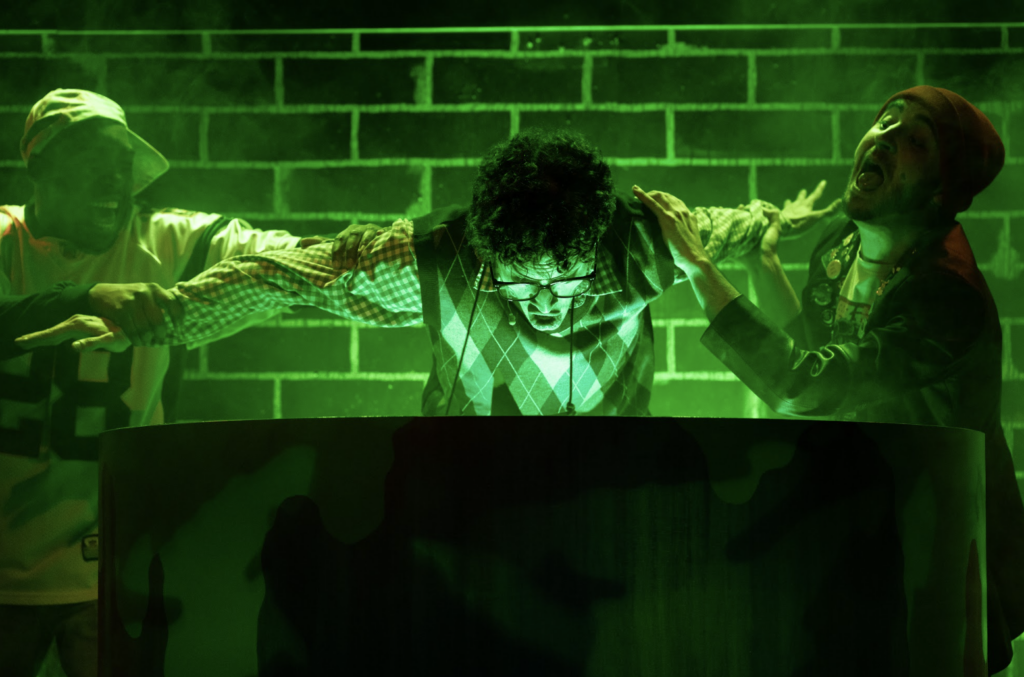Spinning Tree Theatre’s First Generation skewers American limitations on refugee narratives
Spinning Tree Theatre continues its excellent work in staging new, inclusive productions with bold statements, by now adding First Generation to its roster. The original hour-long show, written by KC local Victor Wishna and directed by Michael Grayman-Parkhurst, was commissioned to bring some difficult (and unfortunately timely) themes into focus. Though its short run at Johnson County Arts & Heritage Center is already wrapped, this outing feels like the first of many for a story that takes aim at the nature of storytelling itself. First Generation, which could have easily been a tale of culture clash and resolution, instead follows a more complicated path.
In the show, high-schooler Ruthie volunteers in a classroom for young refugees, and clashes with Patience—a sharp and guarded student who challenges her assumptions. But a chance encounter with a mysterious young woman—perhaps a remnant of her own familial history—forces Ruthie to confront a critical question: “What does it truly mean to welcome the stranger, and what am I willing to do about it?”
Wishna’s story is framed around a well-meaning white teenage girl from a wealthy KC neighborhood. Ruthie has good intentions and sees herself as providing a pathway towards normalcy for a group of immigrants from around her same age range. Focusing in on Patience, Ruthie tries to bond the way she would with any other teen girl from the KC suburbs that she liked and respected—inviting her to join for a shopping spree and bringing Starbucks drinks that are more milkshake than coffee. From the start, Ruthie is using her phone to record their interactions. The idea that this footage will make for an interesting project at her school, and almost certainly prove that she’s both a ‘good person’, Patience sees through the staging almost immediately, but does her best to play along and not offend. Patience, meanwhile, must deal with real-world problems that Ruthie could not fathom, including taking care of a rebellious younger brother when other family members are not in the picture—distractions that make cultural acceptance less important than basic survival.
This storyline between the two teen girls is juxtaposed against monologues from other students in the class. They explore dreams of what America could be, what the future might hold, and often the confusion or pain behind the journey to reach this point. They are all hopeful and inspired, even in the face of a reality that is not a lifestyle (or a current political climate) that exists as advertised.
It is, again, easy to see where this play could have wound up in less talented hands. Monologuing immigrant teens struggling to find their place in a world where they hold little to no power—sure, there will always be a place for shows that want to simply share new stories from new perspectives. Wishna’s connective tissue between these disconnected lives is where the magic exists.
Early in First Generation, it is established that asking anyone in a room full of refugees, “Where are you from?” is a path that leads toward dubious and complicated resolutions. Is anyone ‘from’ a place where their family once lived, but they have never lived, or perhaps never seen? Is one’s point of origin even a fixed point? Surely, it both has a bearing on who they are and, equally, must be secondary to their lived experience, right?
What Ruthie winds up getting wrong about all of this is not the “I’m from the suburbs and I made assumptions about outsiders” but rather a much wider cultural collision that a young adult play requires a lot of confidence to tackle: Why do Americans need outsiders to have a happy story?
It’s a wonderful grenade to throw into a world where the nightly news either demonizes outsiders or celebrates them for the “community” and its ability to rally around them in times of need. It’s a truly toxic extension of a world where we find GoFundMe campaigns for basic human dignity to be “heartwarming” and where The Blind Side forms the generic outline of how we want to see ourselves portrayed—finding someone who has less and simply choosing to improve their station in life, without asking anyone for a parade (yet knowing we want a parade at the end of all this, we just don’t want to say it out loud).
The moment hits when Patience casually turns the tables and asks where Ruthie is from. This isn’t the kind of thing that the always recording cell phone camera is meant to capture. Nor is the unsatisfactory answer of “from… the old country?” That Ruthie is the kind of person who would be frustrated by strangers not having an easy-to-understand logline of their backstory, but equally stumbles over herself when asked about even her basic genealogy, squeezes the entire thesis of the show into a few quick reaction faces. Ruthie is making a movie of these exchanges, not because she sees Patience as having a story worth exploring, but because Ruthie sees everyone in this classroom as an extension of her own story—players and asides to buffer her own feel-good narrative. It is an attack on the story Americans tell themselves, which only needs to ask, “Well, what is your story and where are you from?” in order to twist a blade.
The talented cast, tremendous musical accompaniment, and fresh staging are all boosts atop what was already one of the most innocuously challenging pieces of KC theater this year. When First Generation gets its next staging, we’ll make sure to yell it from the rooftops this time. It’s a must-see that’s worth it if you’re willing to engage.







